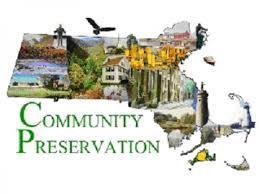About the CPA

The Community Preservation Act (CPA) allows Massachusetts cities and towns to create a local Community Preservation Fund for preserving and improving their community's character and quality of life.
Community Preservation monies are raised locally through the imposition of a surcharge of 3% or less on real property, and municipalities must adopt the CPA by ballot referendum. Allowable uses of Community Preservation funds include open space protection, historic preservation, affordable housing, and outdoor recreational facilities.
The Town of Weymouth voted to adopt the CPA in November 2005. Community Preservation funds are raised through a surcharge of 1% on real property, with exemptions made for income-qualified households and the first $100,000 in assessed value of residential property.
The CPA requires the Town to spend, or set aside for future spending, a minimum of 10% of its annual Community Preservation funds in each of the following categories: affordable housing, historic preservation, and open space and outdoor recreation. The remaining 70% of all funds are "undesignated," and can be used for any allowable project under the CPA.

